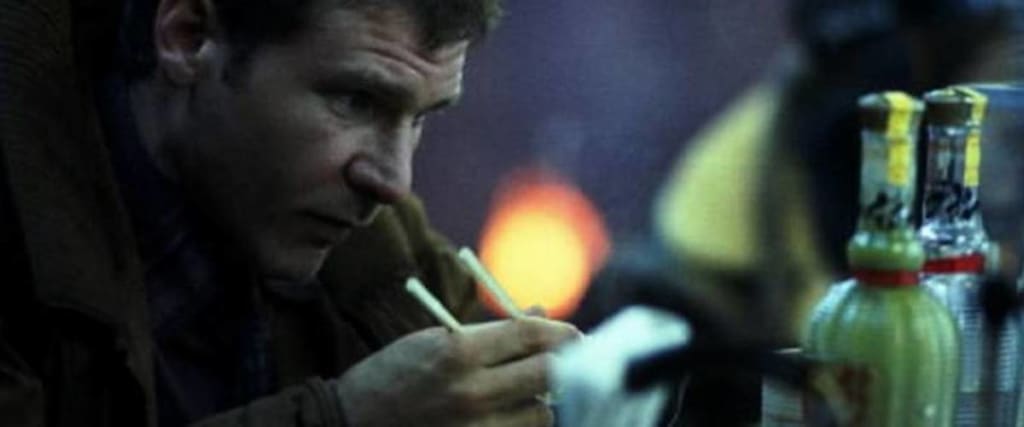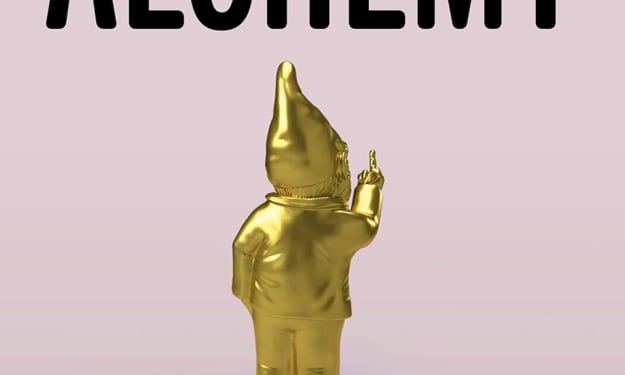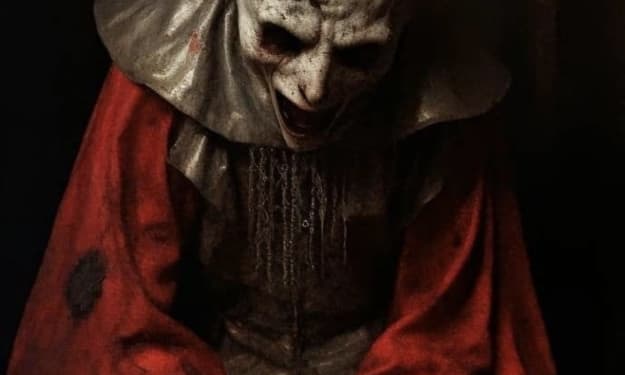Classic Movie Review: 'Blade Runner'
How does the original hold up on the eve of the sequel?

Ridley Scott’s sci-fi epic Blade Runner is one of my favorite films of all time, mostly for the unique, lived-in look, and bleak futuristic setting. Blade Runner is an eye-catching mind-blower that, if it skimps on character development a little, more than makes up for character deficits with incredible visual artistry. It’s unquestionably Ridley Scott’s finest work and with the sequel, Blade Runner 2049, being released soon, it’s as good a time as any to look back on Sir Ridley’s masterpiece.
Deckard (Harrison Ford) is a retired cop living in Los Angeles, circa 2019. Having given up his gig as a so-called Blade Runner, a cop who hunts and kills futuristic slave robots called "Replicants," Deckard is not pleased about being called to his former boss’s office and being pressed back into service. According to the Police Chief, six "Skin Jobs," as he derisively describes the Replicants, have escaped an interplanetary transport, killed dozens of people, and are now on Earth. It will be Deckard’s job to find the Replicants and "retire" them.
The first stop on Deckard’s investigation is the shady Tyrell Corporation where one Replicant has badly wounded another Blade Runner and disappeared. Hoping to gain insights into how to find these dangerous replicants, Deckard sits down to administer what Blade Runners call the Voight-Kampf Test, intended to determine whether the person being interviewed in the test is a human or a replicant. The V-K test works by gauging the emotional responses of the subject to a series of very odd questions—some nonsensical, others with a specific moral center.
The replicant that Deckard interviews, at the behest of the creepy Dr. Tyrell, is Rachael, played by Sean Young. Rachael is unaware that she is a replicant. Tyrell has programmed Rachael to have memories that he implanted into her brain that she believes prove that she is human. Whether or not Tyrell included a life limit of four years into Rachael’s coding is unknown, but we do know that most replicants have only a four year life span and that Roy Batty (Rutger Hauer), the most dangerous of the replicants Deckard is looking for, is determined to find a cure for his short life span.
I said earlier that there are limitations to the character development in Blade Runner and, even after two viewings this week of the Final Cut and Director’s Cut of the film, I still agree with that statement. Deckard is the character we know the most about because he’s the lead, but what we know about him is very limited. Harrison Ford plays Deckard very close to the vest, only allowing us to see a very determined detective who slowly begins to question the nature of humans and machines.
Part of Deckard’s story is told through his relationship to Rachael. As the film progresses, Rachael becomes Deckard’s love interest and, knowing that she’s a replicant, Deckard must weigh whether a replicant is capable of real human emotions like love. For her part, Rachael believes her feelings for Deckard are real, even as she’s been made aware that her memories, the things that she’d use to define herself as human, were not real.
Sean Young delivers a wonderfully dense and conflicted performance as Rachael. All steely cool when we meet her for the first time, it’s fascinating to watch her armor fall away. Watching a replicant be vulnerable, sexy, and sympathetic challenges not just Deckard, but us as well. Can we invest in Rachael as a character knowing that what we are seeing could all be a program Tyrell put into her brain? What’s real and what is not real are the highly unique and wholly fascinating questions raised in Blade Runner.
Roy Batty sure seems to think he’s real, even as his super-human abilities would say otherwise. Roy was a combat model replicant, referred to as Nexus 6. He’s as close to perfect as Tyrell could make him, minus a healthy life-span. Batty knows that he and his fellow replicant and possible lover, Pris (Darryl Hannah) are on limited time and he hopes that finding Tyrell will be the key to saving their lives. The scene where Roy comes face to face with his creator, Dr. Tyrell, is a masterpiece of staging, tension, and payoff.
Of course, that scene is often overlooked in favor of the film’s finale which finds Rutger Hauer delivering Batty’s eulogy in an actory monologue featuring iconic imagery and some wonderfully ad-libbed speechifying by Hauer. Legend has it that director Ridley Scott was so wrapped up in the technical details of Blade Runner that he had to have his cast come up with a great deal of their own dialogue, especially during key moments. Hauer proves to be more than up to the challenge, delivering a Shakespearean tragedy of a closing monologue.
If somehow you’ve never seen Blade Runner, see it before you see Blade Runner 2049. Blade Runner is a necessary primer for the Denis Villenueve-helmed sequel which arrives in theaters on October 6. That film is an extension on the themes and visual style of the original Blade Runner and having that context will only deepen the experience of Blade Runner 2049. There are also rumored to be some very big surprises in 2049, which I am sure seeing the original film will help in creating excitement about.
Blade Runner is a masterpiece of sci-fi noir, capturing the look and feel of a grubby New York street corners from the 1940s, but in a futuristic Los Angeles. The film has all the hallmarks of the classic mob movie, but minus the mob and with human robots, instead. It's a remarkably risky notion, one that would sink under the weight of silliness in the hands of a lesser director. That Blade Runner never drifts into parody or superciliousness, minus that infamous Harrison Ford narration from the original release cut of the film, is a testament to the skill at play from Ridley Scott and his stunningly brilliant cast who flesh out thin characters with soulful performances.
About the Creator
Sean Patrick
Hello, my name is Sean Patrick He/Him, and I am a film critic and podcast host for the I Hate Critics Movie Review Podcast I am a voting member of the Critics Choice Association, the group behind the annual Critics Choice Awards.






Comments
There are no comments for this story
Be the first to respond and start the conversation.